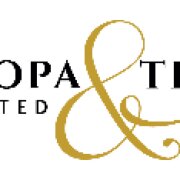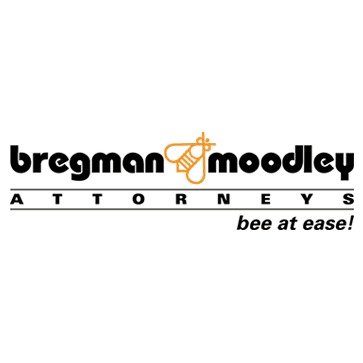Best Nonprofit & Charitable Organizations Lawyers in Johannesburg
Share your needs with us, get contacted by law firms.
Free. Takes 2 min.
List of the best lawyers in Johannesburg, South Africa
About Nonprofit & Charitable Organizations Law in Johannesburg, South Africa
Nonprofit and Charitable Organizations in Johannesburg operate within a robust legal framework designed to promote transparency, accountability, and public trust. These organizations, which include charities, NGOs, and other non-profit entities, play a critical role in society by addressing social needs and contributing to community development. Legal considerations often involve the establishment, management, and dissolution of such entities, requiring an understanding of South African law, particularly the Companies Act and the Nonprofit Organisations Act.
Why You May Need a Lawyer
Legal assistance can be valuable in numerous situations for nonprofit and charitable organizations. Common needs for legal advice include establishing an organization, ensuring compliance with local regulations, drafting and reviewing contracts, navigating tax exemptions and other financial matters, managing employment and governance issues, responding to legal disputes or investigations, and securing intellectual property rights. Lawyers specializing in this area can help nonprofits operate effectively within the legal landscape.
Local Laws Overview
In Johannesburg, several key legal aspects are relevant to Nonprofit & Charitable Organizations. The Nonprofit Organisations Act 71 of 1997 provides a framework for the registration and governance of NPOs. Additionally, the Companies Act regulates nonprofit companies and delineates the responsibilities of directors and officers. Other relevant legislation includes taxation laws that impact nonprofit entities and labor laws affecting their operations. Adherence to these laws ensures legal compliance and maintains the entity’s good standing.
Frequently Asked Questions
What is a nonprofit organization in South Africa?
A nonprofit organization (NPO) is a legal entity that operates for a public or social benefit rather than for profit. In South Africa, these can include voluntary associations, nonprofit trusts, or nonprofit companies.
How do I register a nonprofit organization in Johannesburg?
To register, you must submit the required documents to the Department of Social Development. This includes a constitution or founding statement, names of office bearers, and details of the physical address of the organization.
Do nonprofits in Johannesburg pay taxes?
Nonprofits may qualify for tax exemptions under certain conditions. They must apply for tax exemption status with the South African Revenue Service (SARS) and meet specific criteria to maintain this status.
What are the governance requirements for nonprofit organizations?
Nonprofits must have a governing board or committee, maintain proper accounting records, and prepare annual financial statements. They must also comply with the specific governance requirements outlined in their founding documents and applicable legislation.
Can a nonprofit organization engage in commercial activities?
Yes, nonprofits can engage in commercial activities as long as these activities support their primary objective. However, profits must be used to further the organization's mission rather than distributed to members or directors.
What happens if a nonprofit fails to comply with regulations?
Noncompliance can result in penalties, loss of tax-exempt status, or even deregistration. It’s crucial for nonprofits to stay informed about their legal obligations and ensure compliance to avoid such consequences.
How can I dissolve a nonprofit organization?
To dissolve a nonprofit, the organization must pass a resolution, settle any debts, and distribute remaining assets according to its constitutional provisions. Proper procedures must be followed to ensure legal closure.
What are the reporting requirements for nonprofits?
Registered nonprofits must submit regular reports to the Department of Social Development, including annual financial statements and activity reports. These help ensure transparency and accountability.
Can a foreign entity establish a nonprofit in Johannesburg?
Yes, foreign entities can establish nonprofits in Johannesburg. They must adhere to South African laws and may need to meet additional requirements regarding foreign ownership or control.
What support is available for nonprofit organizations?
Various support is available, including grants from governmental and international organizations, capacity-building programs, and networks that offer assistance in governance, fundraising, and strategic planning.
Additional Resources
For further assistance, consider reaching out to the following resources:
- The Department of Social Development, which provides guidelines and resources for NPO registration and compliance.
- The South African Revenue Service (SARS) for information on tax exemption and compliance.
- The Companies and Intellectual Property Commission (CIPC) for registering nonprofit companies and maintaining compliance.
Next Steps
If you require legal assistance in the realm of Nonprofit & Charitable Organizations, consider the following steps:
1. Identify your specific legal needs, such as registration, compliance, or dispute resolution.
2. Research and consult with a lawyer or law firm specializing in nonprofit law in Johannesburg.
3. Gather all relevant documents and information pertaining to your organization to facilitate the legal process.
4. Establish ongoing legal advice to ensure your organization stays compliant with current laws and regulations. Frequent legal check-ups can prevent potential legal issues from arising.
Lawzana helps you find the best lawyers and law firms in Johannesburg through a curated and pre-screened list of qualified legal professionals. Our platform offers rankings and detailed profiles of attorneys and law firms, allowing you to compare based on practice areas, including Nonprofit & Charitable Organizations, experience, and client feedback.
Each profile includes a description of the firm's areas of practice, client reviews, team members and partners, year of establishment, spoken languages, office locations, contact information, social media presence, and any published articles or resources. Most firms on our platform speak English and are experienced in both local and international legal matters.
Get a quote from top-rated law firms in Johannesburg, South Africa — quickly, securely, and without unnecessary hassle.
Disclaimer:
The information provided on this page is for general informational purposes only and does not constitute legal advice. While we strive to ensure the accuracy and relevance of the content, legal information may change over time, and interpretations of the law can vary. You should always consult with a qualified legal professional for advice specific to your situation.
We disclaim all liability for actions taken or not taken based on the content of this page. If you believe any information is incorrect or outdated, please contact us, and we will review and update it where appropriate.
















